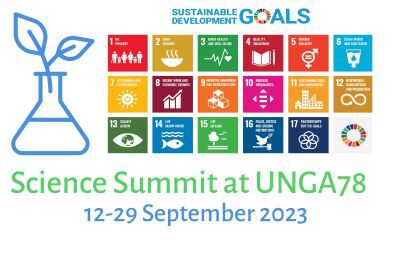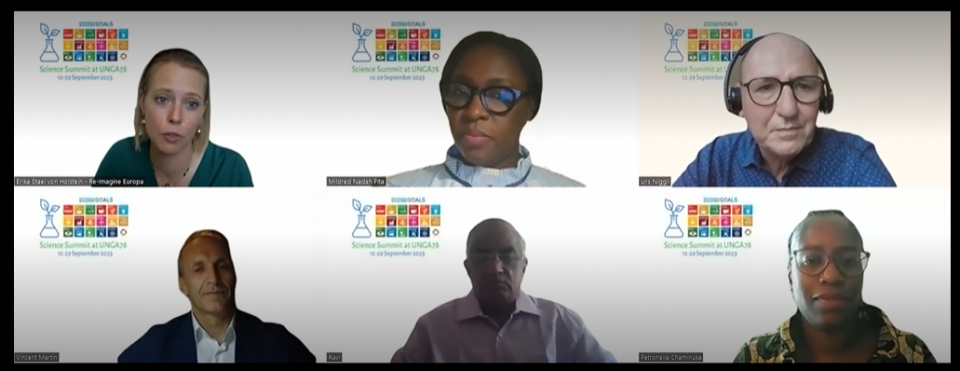
As part of the 9th edition of the Science Summit at United Nations General Assembly (UNGA), on September 20th, Re-Imagine Europa organised a virtual session on “Innovation and Sustainability in Agriculture – do we need a new discourse?”. The panel had the moderation of Erika Widegren Staël von Holstein, Re-Imagine Europa’s Chief Executive, and the participation of Professor Urs Niggli, President of the Institute for Agroecology, Dr. Vincent Martin, Director of Innovation at FAO, Mildred Nadah Pita, Head of Public Affairs, Science and Sustainability for Africa at Bayer, V. Ravichandran, farmer and member of the Global Farmer Network, and Dr. Petronella Chaminuka, Impact and Partnerships Division Executive at the Agricultural Research Council.

The session discussed the need to develop new narratives on the role of innovation and new technologies in achieving sustainability in food production, as well as ways to counter the increasing polarization of the debate and ensure that voices from all world regions are heard. It started with a keynote presentation delivered by Professor Urs Niggli, on the necessity of empowering farmers to take responsibility for the transformation of their own production. Moreover, he supported that innovation needs to be broadened to all kinds of innovations, whilst remaining affordable for farmers. Basically, the concept of innovation should be deepened and become more complex.
According to Dr. Vincent Martin, in the ongoing battle to address pressing global issues, farmers are emerging as integral players in the solution. However, a significant knowledge gap persists, hindering the seamless integration of cutting-edge scientific advancements into practical farming practices. Especially in regions of the global south, the adoption of science and technology remains staggeringly low. Therefore, a full picture of all technologies emerging for food systems transformation must be built to equip farmers and policymakers with the knowledge needed to select the most suitable technology for specific contexts.
Mildred Nadah Pita highlighted the contribution of industry to make agriculture more sustainable, emphasising the role of social innovation in developing countries. The Head of Public Affairs, Science and Sustainability for Africa at Bayer defended also that innovation can be a pivotal step to greater productivity and sustainability.
The challenges faced by farmers nowadays are multidimensional, as mentioned by V. Ravichandran, farmer and member of the Global Farmer Network, so it is necessary to move and adapt quickly to provide appropriate solutions. Dr. Petronella Chaminuka agreed and delved on how equity, diversity and inclusion need to be taken into consideration when we discuss new technologies and innovation and that the interventions must be tailored to tackle the different necessities on the ground.
At Re-Imagine Europa, we believe that farmers and their needs need to be at the centre of the debate since they are a key element of the innovative framework that must be implemented for the future of the European food systems and agriculture. As part of its work to build new narratives for a more sustainable food system, Re-Imagine Europa recently organized an Expert Workshop on Regulatory Approaches to Sustainability and Innovation that brought together leading experts and thinkers from a diverse set of stakeholders to analyse how sustainability might be incorporated with safety considerations involving innovation in crop breeding techniques within EU policies such as the Sustainable Food Systems Framework and the EC regulation on NGTs. The workshop’s participants looked at how we can go beyond polarizing narratives and maintain the goals set forth out by the European Green Deal and the Farm to Fork Strategy, through better use and integration of innovations into the toolbox available to farmers.




